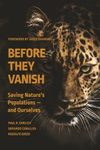![Can Fixing Dinner Fix the Planet? Can Fixing Dinner Fix the Planet?]()
Click to have a closer look
About this book
Contents
Customer reviews
Biography
Related titles
About this book
How can consumers, nations, and international organizations work together to improve food systems before our planet loses its ability to sustain itself and its people?
Do we have the right to eat wrongly?
As the world's agricultural, environmental, and nutritional needs intersect – and often collide – how can consumers, nations, and international organizations work together to reverse the damage by changing how we make, distribute, and purchase food? Can such changes in practice and policy reverse the trajectories of the biggest global crises impacting our world: the burden of chronic diseases, the consequences of climate change, and the systemic economic and social inequities that exist within and among nations?
Can Fixing Dinner Fix the Planet? is a clarion call for both individual consumers and those who shape our planet's food and environmental policies that:
- describes the often destructive path that foods take from farms and seas through their processing, distribution, marketing, purchasing and waste management sites
- explores the complex web of factors impacting our ability to simultaneously meet nutritional needs, sustain biodiversity and protect the environment
- raises readers' food and environmental literacy through an engaging narrative about Fanzo's research on five continents along with the work of other inspiring global experts who are providing solutions to these crises
- empowers readers to contribute to immediate and long-term changes by informing their decisions in restaurants, grocery stores, farmers markets, and kitchens
Contents
Preface
Acknowledgments
Introduction: Yes, We'll Have No Bananas
Chapter 1. Are We What We Eat, or What We're Fed?
Chapter 2. Can Cooking Curry in Cambodia Trigger a Tornado in Texas?
Chapter 3. Do We Have the Right to Eat Wrongly?
Chapter 4. Can Better Policies Create Better Food?
Chapter 5. Can One Bee Save the Hive?
Notes
Index
Customer Reviews
Biography
Jessica Fanzo is a Bloomberg Distinguished Professor and the director of the Global Food Ethics and Policy Program at Johns Hopkins University. She previously held positions at Columbia University, the Earth Institute, the Food and Agriculture Organization of the United Nations, the UN World Food Programme, Bioversity International, and the Millennium Development Goal Centre at the World Agroforestry Center in Kenya. She is a frequent contributor to media outlets including NPR, the New York Times, Reuters, and the Wall Street Journal.
By: Jessica Fanzo(Author)
240 pages, 3 b/w illustrations
"Jessica Fanzo has seen it all, read everything, and talked to everyone. You can have no better, more knowledgeable guide to the mess the food system is in, and how we can get out of it. If you want to do something about the global nutrition crisis, read her book, and roll up your sleeves, as she does."
– Luigi Guarino, Crop Trust / Svalbard Seed Vault
"Jessica Fanzo argues that dinner not only can fix the planet but must. Read her book. It's beautifully written, authoritative, and utterly convincing – essential reading for anyone interested in food system approaches to world food problems."
– Marion Nestle, New York University, author of Let's Ask Marion: What You Need to Know about the Politics of Food, Nutrition, and Health
"Dr. Fanzo's book is not only a wake-up call for eaters but a roadmap for how to make our global food system more ecologically and socially just. She explains the fragility of our current way of producing food while giving us hope that things can change for the better."
– Danielle Nierenberg, President, Food Tank
"Your food choices truly matter for both your own and our environment's health. Can Fixing Dinner Fix the Planet? guides you through the far-reaching impacts of your decisions and provides hands-on ways to combat the issues we face. For the love of food and the planet, dig in, and bon appetit!"
– Michiel Bakker, Google Global Workplace Services Programs
"A unique synthesis that weaves together revealing data with the author's personal experience, Can Fixing Dinner Fix the Planet? demonstrates the negative impacts food systems are having on health and the environment on both small and large scales. Fanzo's description of her work in some of the hardest-hit communities is especially illuminating, and reveals how the global challenges of providing healthy and sustainable diets for all leaves no region untouched. Readers of Michael Pollan, Mark Bittman, Frances Moore Lappé, and Marion Nestle will be interested in this nuanced book."
– Michael Clark, Centre on Population Approaches for Non-Communicable Disease Prevention, University of Oxford



































